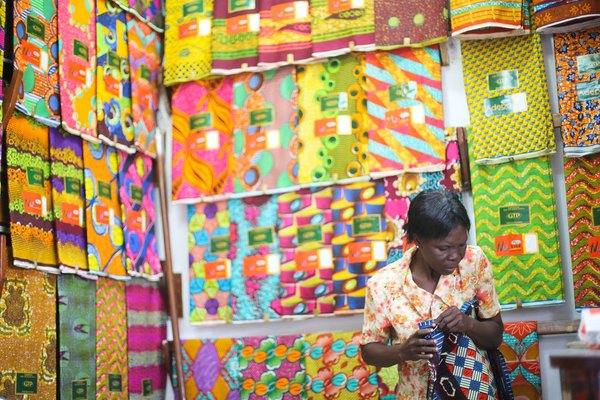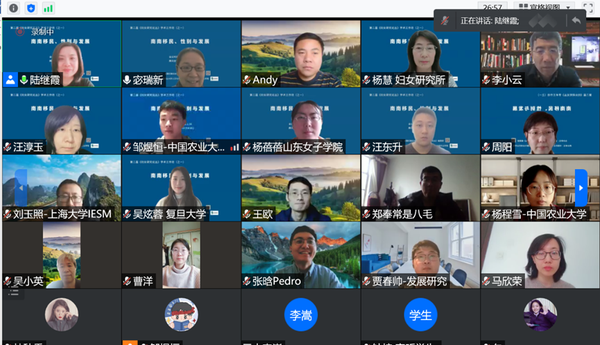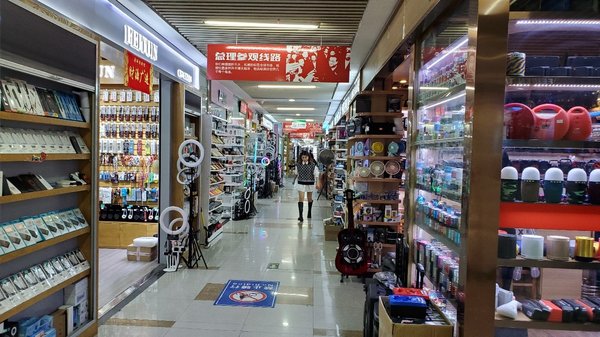Photos via MIDEQ China team.
The MIDEQ team in China organised a series of workshops for migrants and locals as part of their "Improving Migrant Lives" impact interventions. This intervention responded to a number of problems that prevent migrants, their families and the communities they live in from maximising the equitable benefits of migration in different contexts and minimising any negative impacts.
Rural development workshop
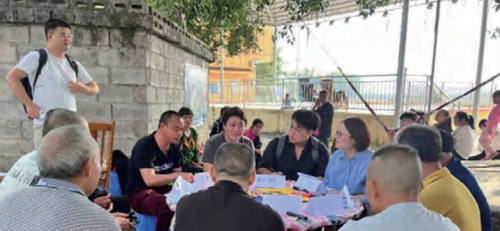
The team, in collaboration with local partner Dr. Bin Jiang and her team from Guangxi Minzu University, organised a workshop titled "China-Ghana Population Mobility and Rural Development" in Shanglin County, Guangxi Zhuang Autonomous Region. Focused on "The Impact of COVID-19 on Transnational Population Mobility and Response Strategies," the event engaged 80 participants, including village cadres, returned migrants, and families who stay back such as women, children, and the elderly from surveyed villages. Discussions addressed the challenges faced by transnational migrant workers, the pandemic's effects on migration, and strategies for response, shedding light on the conditions and impacts of transnational labour groups in Africa and informing future research and policy recommendations for migrant livelihoods.
Language workshop
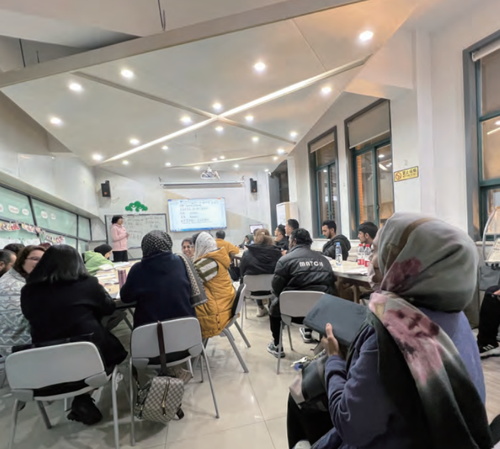
In collaboration with local partner Dr. Lu Cheng and colleagues at Yiwu Industrial & Commercial College in Yiwu City, Zhejiang Province, the team conducted a "Chinese Learning" workshop. Aimed at addressing language-learning needs of migrants in Yiwu for business, study, and living, the workshop also facilitated interviews to assess their social integration status. Professor Jixia Lu, Co-Investigator of the China team, along with Research Assistants Dongsheng Wang and Junjie Zhao, organised the event. A total of 28 overseas students from seven countries participated, engaging in lessons covering Chinese pronunciation, intonation, writing, and practical conversation focusing on day-to-day activities, business operations, and social integration. This initiative deepened the MIDEQ China team's understanding of the work and living conditions of migrant entrepreneurs in Yiwu, fostered local networks, and laid groundwork for future research endeavours.
Overall impact
These workshops serve as a crucial platform for initiating discussions and formulating potential strategies aimed at mitigating the inequalities faced by migrant workers and locals. The dynamic interactions between migrants and community-based organisations, as well as human rights institutions, have spurred efforts to safeguard migrant rights. By documenting these community-based initiatives and local institutional supports, we can pinpoint grassroots-driven approaches to nurturing environments conducive to the emergence of new forms of communal solidarity among local communities and stakeholders. Through such collaborative efforts, we can strive towards reducing disparities and fostering inclusive communities where migrant workers are empowered and their rights protected.

